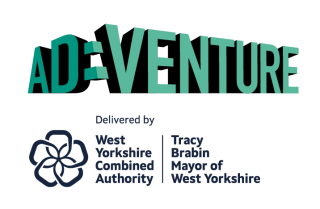
Getting the best results from your CV
Aug 25
Like them or loathe them, for now at least, CVs are here to stay. Prospective employers want to see them and so candidates must provide them. And that is why we are all still relying on the same old CV.
It is also why putting some time, thought and effort into what you write really matters.
This is about more than first impressions; this is about lasting impact. Here’s some top tips to help you make the most of the small space you have to put a spotlight on your personality and showcase your skills.
- Don’t use confusing language.
It is highly unlikely that your employer will be judging you on how complex your vocabulary is. They simply want to know what skills you have and to better understand how they will benefit the business.
All that happens when you use long words and jargon is the person reading the content will get bored. No one wants to use a thesaurus to read a CV.
- Include bullet points
A CV should be around two-pages long. This can make it difficult to get across everything you want to include. If that’s the case, then try adding bullet points to keep the wordcount down. Being clear and concise will give any prospective employer the information they’ll need.
- Be careful with templates
Some templates that you can find online may look impressive but if that’s at the expense of having a greater wordcount to share your experiences, think again. Remember, an employer wants to know about you, not the fancy designs you can find on your desktop.
- Add references
It’s easy to fall into the trap of simply putting references on request but that doesn’t give a prospective employer any confidence. If you have strong references, then it is always better to share them. If possible, provide quotes from those that are willing to endorse you. It will add credibility by association.
- Honesty is always the best policy
There is nothing wrong with focusing on the great work that you have delivered for other companies but remember, there is a fine line between embellishing and lying. If you claim to be an expert in a particular software, you may need to be able to prove that if you get the job.
Leading someone to believe you are more competent than you are rarely works out well. In fact, you’ll most likely be needing your CV sooner than you think!
- Adding an image or not
If you want to add a picture to your CV that’s fine, however your favourite selfie with perfect pout may not provide the right professional image. Think about what you are trying to convey with an image and capture something that is suitable for the role.
- Capital letters
In the same way you should be mindful of using all capital letters in an email, you should do the same with CVs. The last thing you want is for your prospective employer to think you are shouting at them. Capital letters should be kept to the start of a sentence and only where needed throughout the copy.
- Proofread your work
Silly mistakes matter. Spelling errors, grammar and the formatting of the document will all be scrutinized. Make sure you get it right. Take the time to read through and to check, double check and even triple check your work before sending it off.
- Standard sentences
Many of us were taught at school to include lines such as ‘able to work independently and as a team player’ or ‘enjoys reading and socialising with friends’. While these statements may be true, the way they are phrased is lifted straight from a year 11 careers lesson.
Think about how you can add some personality, perhaps with examples, ‘during my role at x company, I managed a project that delivered against all KPIs set. It was great to show how I could bring out the best in my colleagues and to share the rewards as a team’.
- Cover letter
Use a cover letter to complement your CV. Use it as a tease to what more the recruiter or employer can expect. Reinforce the key points and make clear any details or experiences that you feel are particularly relevant.
Summary
While this is not a comprehensive list of the dos and don’ts for CV writing, it should provide some pointers to get you started and to stop you from falling into some classic traps. We wish you all the luck with your job search.
For more advice and guidance in relation to job searches, please visit iSource Group: www.isourcegroup.com






